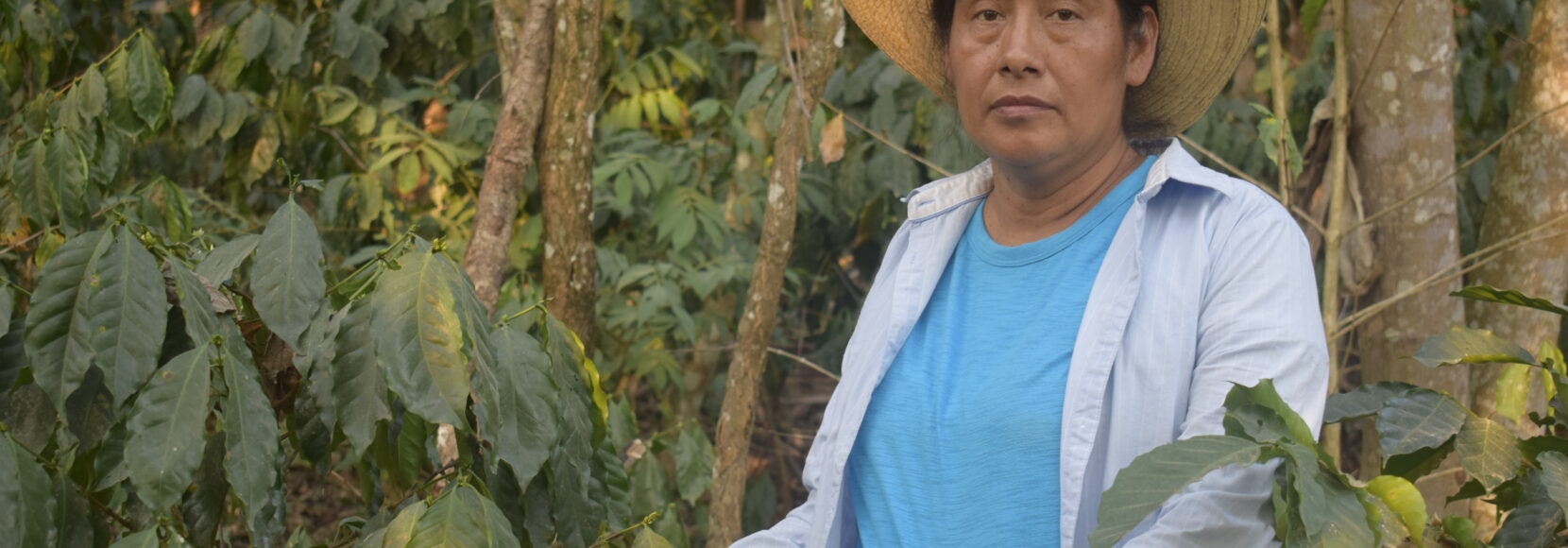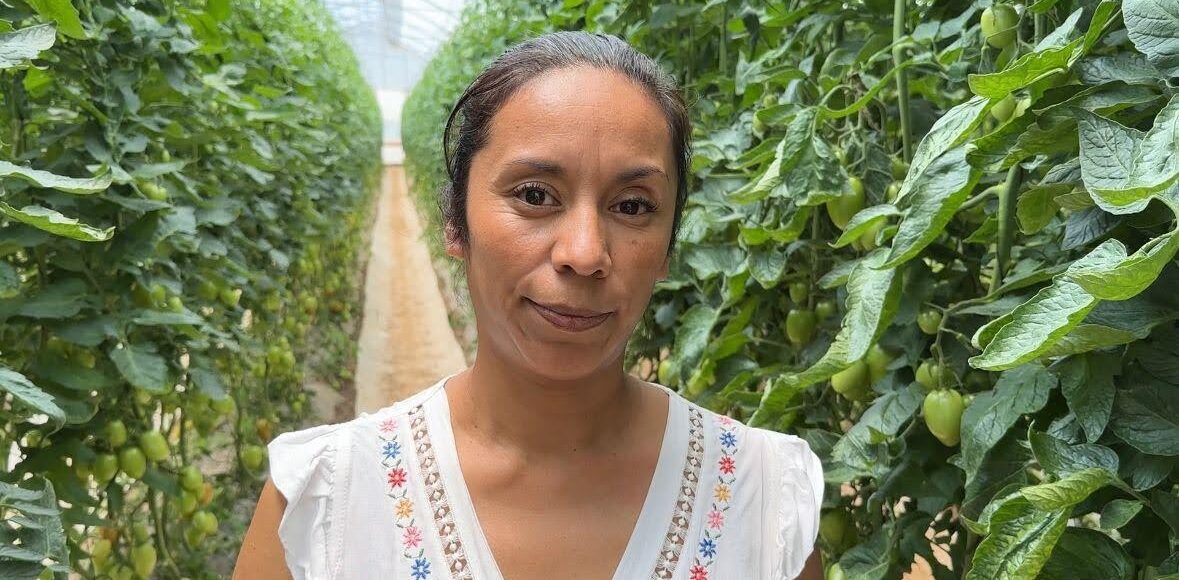
5 Things to Know About the Global Climate Conference COP28
What does a world climate conference like COP28 have to do with ending poverty? TechnoServe offers five reasons why it matters to developing countries.
What does TechnoServe’s mission to end global poverty have to do with the 28th Conference of the Parties (COP28) to the UN Framework Convention on Climate Change (UNFCCC)? World leaders will gather in Dubai to work together on climate solutions from November 30 – December 12, 2023.
TechnoServe leaders Will Warshauer, Katarina Kahlmann, Kindra Halverson, and Mefthe Tadesse will be at COP28 to ensure that smallholder farmers and small businesses play an even bigger role in global climate solutions.
| Read our COP28 call to action |
In this blog, you’ll learn about:
- A spotlight on food systems and agriculture at COP28
- Smallholder farmers on the frontlines of the climate emergency
- The importance of economic sustainability to environmental sustainability
- What makes a different future possible
- Your ability to be part of the change
5. A spotlight on food systems and agriculture at COP28
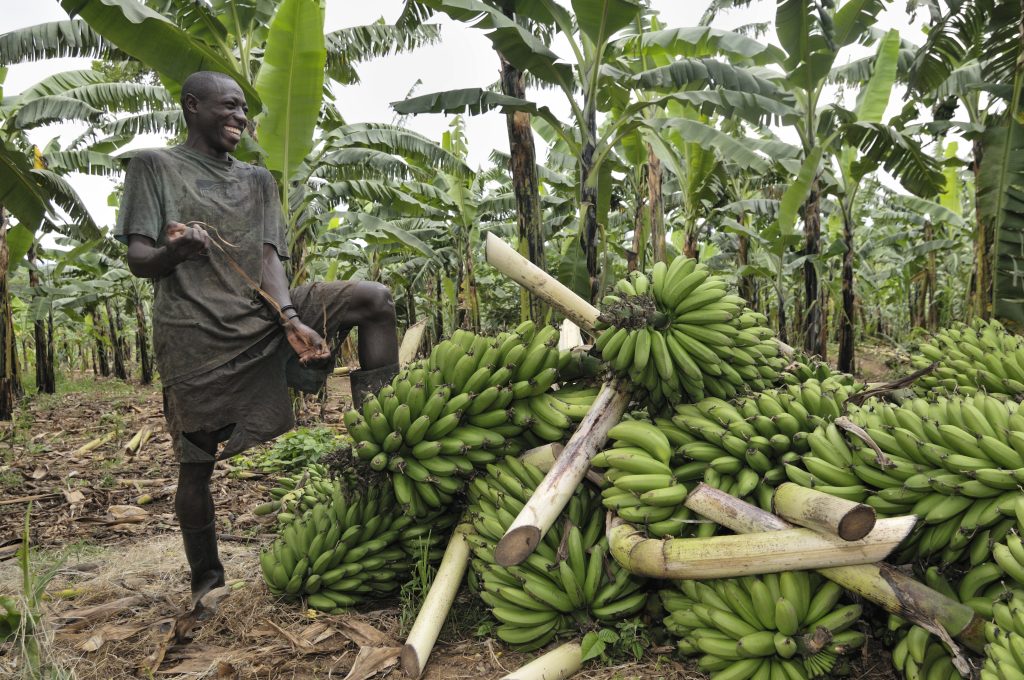
The annual Conference of the Parties is the most important global decision-making forum to tackle what UN Secretary-General António Guterres described as an “existential threat” to humanity–climate change. This year will mark the first Global Stocktake to align efforts on climate action, including measures and finance that need to be put in place to bridge the gaps in progress. Representatives from nearly 200 countries will evaluate progress made since the 2015 Paris Agreement, a legally binding international treaty on climate change.
COP28 is also being hailed as the “Food COP.” The COP28 Presidency put a spotlight on transforming agri-food systems so that this sector can drive progress towards a climate-positive future.
At present, agri-food systems are responsible for one-third of all greenhouse gas emissions, amounting to approximately 16.5 billion tons annually–more than the combined emissions of North America, Europe, Africa, South America, and Oceania.
TechnoServe welcomes COP28 as an opportunity to call for concerted global climate action. We remain committed to our Regenerate 30 initiative, which was included in the United Nations Climate Champions’ Compendium of Climate-Related Initiatives at COP27. Within this decade, we will benefit 30 million people, cut 30 million tons of carbon dioxide equivalent, and strengthen the protection, management, or restoration of 30 million acres of land and water.
We are showing through our work on Regenerate 30 that there are existing, nature-based solutions that can be scaled up today to help boost climate resilience and combat emissions.”
– Katarina Kahlmann, Chief Program Officer at TechnoServe
4. Smallholder farmers are already on the frontlines of the climate emergency
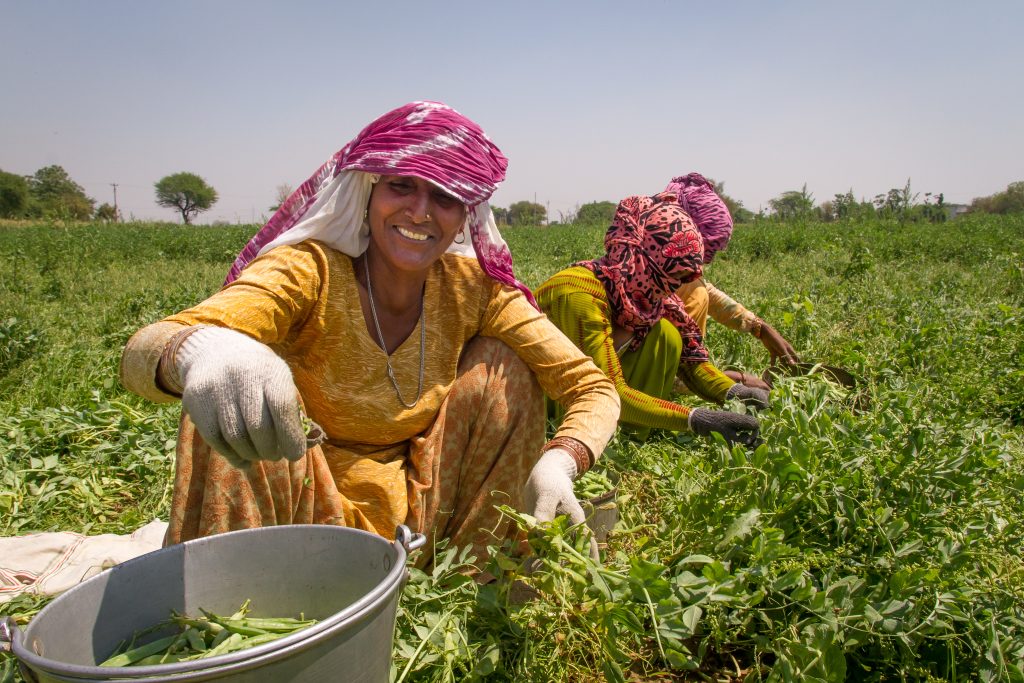
There isn’t a big margin of error for smallholder farmers who rely on regular harvests to keep their families and communities fed, clothed, healthy, and educated. Climate change increases their vulnerability to uncertainty and extreme weather events, including hurricanes, floods, and droughts. The results can be devastating.
TechnoServe is already seeing how climate change upends the lives and livelihoods of our clients–smallholder farmers and small business entrepreneurs across Africa, Latin America, and Asia.
TechnoServe will be at COP28 to emphasize the importance of collective action to spark a regenerative food revolution through the lens of credibility, capacity, and context.
- Credibility: Real outcomes that demonstrate the potential for regenerative agriculture to move into the climate-positive column.
- Capacity: Smallholder farmers must receive agronomy training that builds technical skills and complements indigenous and traditional knowledge so they value and adopt regenerative practices at scale.
- Context: Replicable, shovel-ready regenerative models for different landscapes, crops, and value chains.
By supporting vital agribusinesses, making food systems more inclusive and equal, and boosting the resilience of the most vulnerable actors, we can help ensure that food systems can…face new challenges to come.”
– Kindra Halverson, Chief Transformation Officer, TechnoServe
3. Environmentally sustainable must also be economically sustainable

The world is already experiencing the ferocity of the climate crisis with record-breaking heat, devastating floods and fires, and rapidly warming seas. It is leaving the poorest among us even more vulnerable to hunger, exploitation, and poverty. Climate change creates a vicious cycle that makes it harder for people to lift themselves out of poverty. Breaking this cycle is imperative to our mission to fight poverty.
A recent Intergovernmental Panel on Climate Change report stated that almost 8% of the world’s farmland would become unsuitable for growing food if global warming increased by 1.5 degrees Celsius. By mid-century, a possible 80 million additional people could be at risk of hunger, mainly in sub-Saharan Africa, South Asia, and Central America.
TechnoServe knows a thing or two about creating business solutions to address global poverty. For 55 years, TechnoServe has worked to transform the lives of millions of smallholder farmers and small business entrepreneurs.
When it comes to lasting and sustainable change, our clients must feel confident about the benefit to their lives and livelihoods–especially in the face of climate change impacts. We have data, strong local expertise, and a track record to offer.
To improve overall climate resilience, TechnoServe helps farmers adopt climate-smart agriculture techniques that include increasing farm productivity, enhancing farmer resilience to climate threats, and reducing greenhouse gas emissions when possible.”
– Mefthe Tadesse, Regional Director, TechnoServe East Africa
2. Beyond COP28: A different future is possible
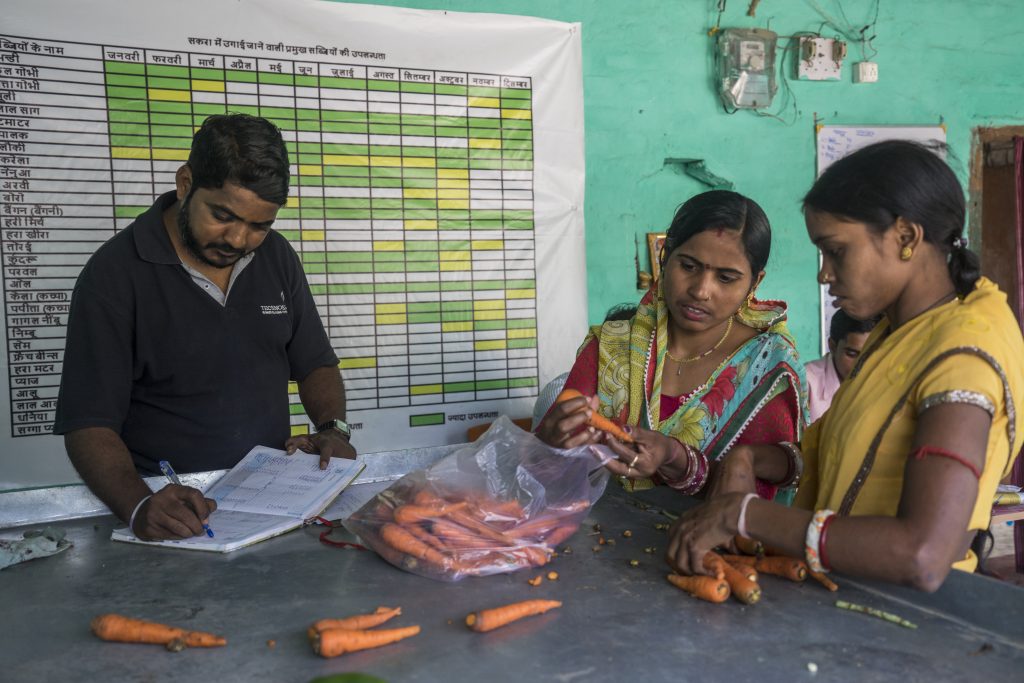
In a world grappling with the far-reaching consequences of climate change, TechnoServe is going to COP28 to emphasize the belief that a different future is not only necessary but entirely achievable. We envision a global agri-food systems revolution that, when nurtured from the ground up, can pave the way for a sustainable and resilient future.
We believe the most impactful solutions emerge when individuals, communities, and organizations collaborate. Replication and impact at scale of successful initiatives will only be possible with collective action.
A cornerstone of TechnoServe’s optimism lies in the conviction that smallholder farmers and small businesses can be transformative forces for regenerative business practices. When given the right resources and incentives, they can be pivotal in driving sustainable agriculture and fostering resilience in the face of climate change.
COP28 is where we lay the groundwork for significant progress by COP30 in Brazil. We invite broad collaborations to unite, act, and deliver in transforming global agri-food systems.
We all have a stake in the struggles of small farmers…[climate change] is a problem that affects all of us, and the solution must involve all of us: governments, research institutions, citizens’ groups, and everyone in between.”
– Will Warshauer, CEO of TechnoServe
| Join a global livecast of Will speaking at the Agri-Food Systems Summit at COP28 on Dec 8, 2023. |
1. Be a part of the change
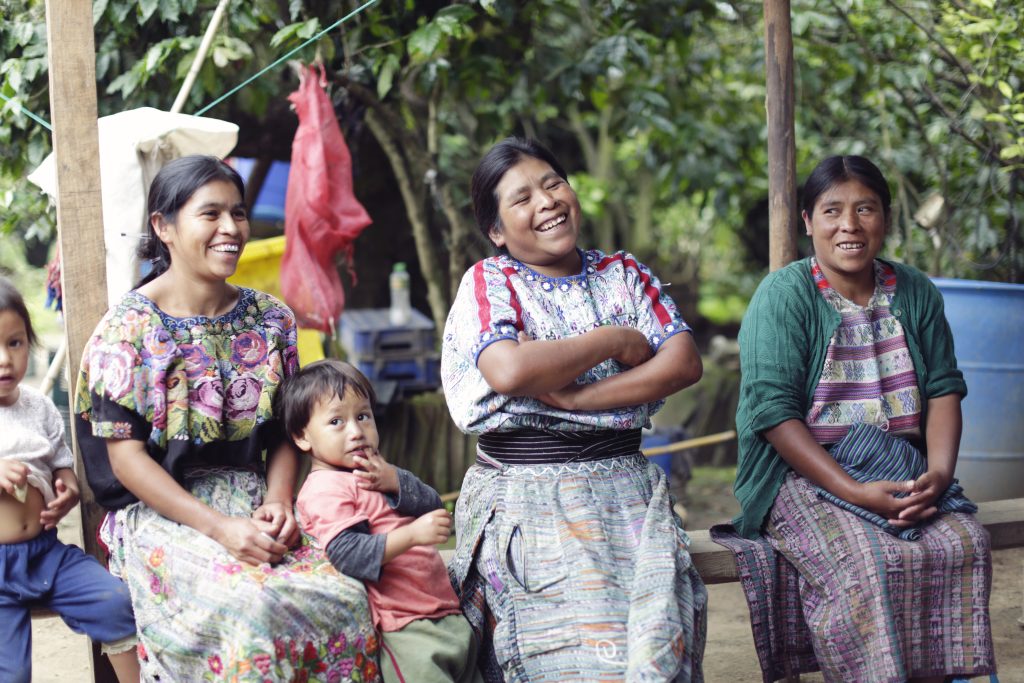
No matter where in the world you are, we share this planet as our home and responsibility for its care. What happens at COP28 directly affects our future, so please, stay engaged and active about climate change.
Here are a few suggestions:
- Track your government’s climate commitments and advocate for more ambitious goals.
- Stay informed about sustainable practices and support initiatives that promote climate resilience.
- Engage in conversations about climate change within your community.
- Use social media to learn more and share more. Follow TechnoServe on social media for news from COP28.
- Join local environmental groups to protect land, air, and water resources.
Your individual actions help to build our future. By staying engaged, you foster a collective commitment to protecting our shared home, Earth.
More ways to learn about climate change:
- 5 Ways Climate Change Disproportionately Impacts Women
- A short quiz to test your knowledge of climate change
- UN CC- e-Learn offers great courses on climate literacy




